Last week Mongabay-Indonesia—our Indonesian-language environmental news service—celebrated its fifth anniversary with an event held at @America in Jakarta. The following traces Mongabay-Indonesia’s evolution from a concept to a popular web site whose influence extends well beyond Indonesia.
Five and a half years ago, Mongabay was a two-person organization. While our site was well-respected and widely-read in the conservation community, we had big ideas that could never be realized under our advertising-based business model of the time. One of those ideas was to build an Indonesian environmental news service.
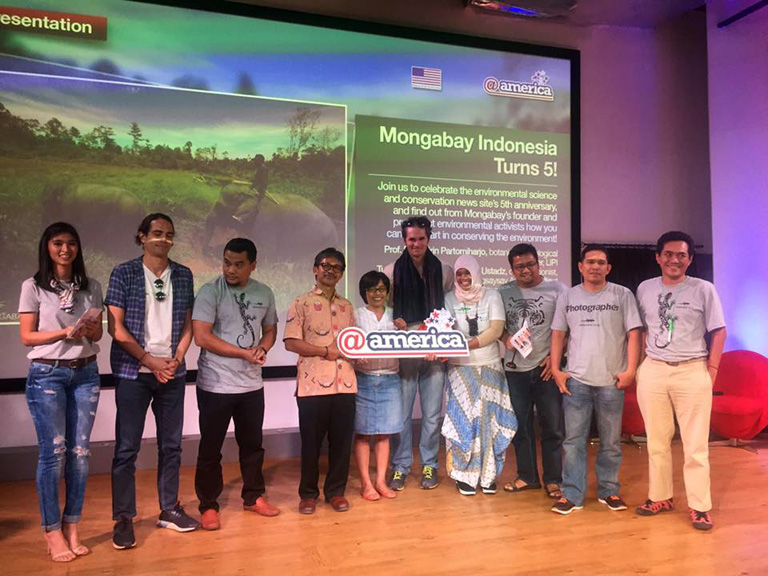
Mongabay-Indonesia team at the event, which was graciously hosted by @America in Jakarta.
Why Indonesia? Firstly, it has a huge amount of biodiversity living among its many ecosystems ranging from coral reefs to rainforests, much is which is threatened by unsustainable harvesting and habitat conversion, degradation, and destruction. It also has a huge human population which lacked reliable access to environmental news. In the early 2010s, Indonesia looked to be at a potential inflection point where it could shift from a deforestation-driven development model that laid waste to its biological and cultural diversity to something greener, perhaps following the path pioneered by Brazil, which had recently curbed deforestation in the Amazon while still expanding agricultural output. There was high-level political support from then president Susilo Bambang Yudhoyono, a billion dollar commitment from Norway to fund efforts to reduce deforestation, and new pledges from several companies to reduce or eliminate deforestation from their palm oil supply chains.
Given that one of the major obstacles to progress in Indonesia was corruption in the natural resources sector, an environmental news service that increased transparency and accountability around forests might actually make a significant contribution toward shifting business-as-usual practices. Environmental journalism seemed to offer the potential to help create an enabling environment for others—advocacy groups, researchers, progressive companies, communities, and the bureaucracies—working on forests and related issues in Indonesia.
So with the intent of building such a service, in 2012 I formed a non-profit: Mongabay.org. Its first project was Mongabay-Indonesia: an Indonesian-language environmental news service, for Indonesians and by Indonesians.
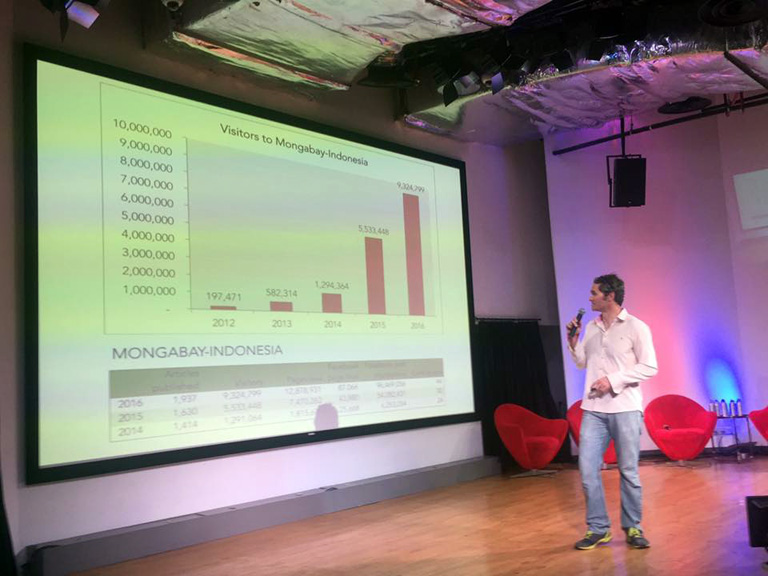
Mongabay founder Rhett A. Butler showing Mongabay-Indonesia’s traffic.
After securing our first organizational grant, I posted three job descriptions in English and Indonesian. The response was overwhelming: more than 200 applications came in just three weeks. Two weeks later, we hired the team, which was led by Ridzki Sigit, our program manager.
I really didn’t know what to expect. I didn’t speak in Indonesian and most of my time in the country had been spent in remote forests, not cities. But I put my faith in my small team and was rewarded with remarkable success. Within three months of hiring the team, Mongabay-Indonesia was arguably the most popular web site dedicated to environmental issues in Indonesia. The team was already being regularly invited to events along with Indonesia’s biggest and best-known media outlets. I think we were all surprised by the early success of the project—it spoke to the hunger for this kind of information in Indonesia.
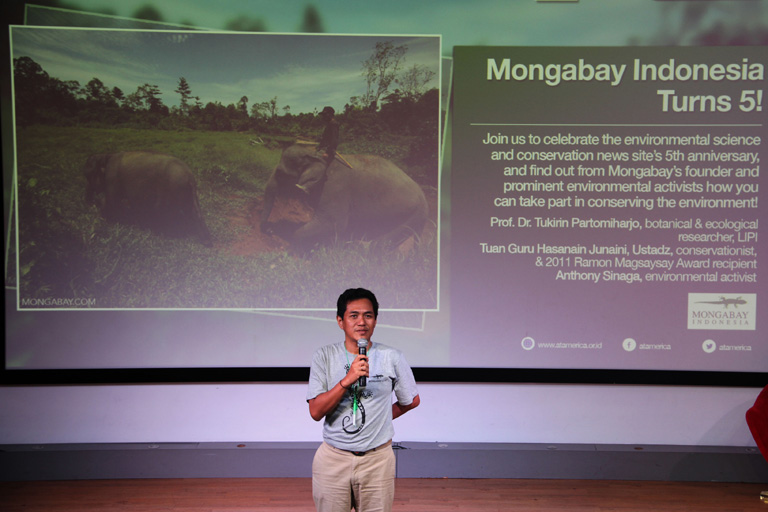
Mongabay-Indonesia program manager Ridzki Sigit at @America in Jakarta. Photo by Donny Iqbal, Mongabay-Indonesia Contributor in Bandung, West Java.
Today Mongabay-Indonesia averages nearly a million visitors per month. We’ve been called out by the president of Indonesia, held events attended by thousands of people, and have correspondents based in two dozen provinces from Aceh to Papua. Our reporting has had real impacts, from exposing environmental transgressors to showcasing successful conservation models and also spurring government investigations of eco-crimes. Our reporters have won accolades for their fine work.
Mongabay-Indonesia’s influence now extends beyond Indonesia. Early on, Mongabay-Indonesia was a place for testing new ideas. For example, the distributed correspondent model Mongabay employs globally was pioneered in Indonesia, while Mongabay’s social media strategy has drawn important lessons from Indonesia, which has higher proportional of social media use relative to the English-speaking world. Last year, in the ultimate nod to the site’s success, we launched Mongabay-Latam, a Spanish-language news service for Latin America that is modeled after Mongabay-Indonesia.
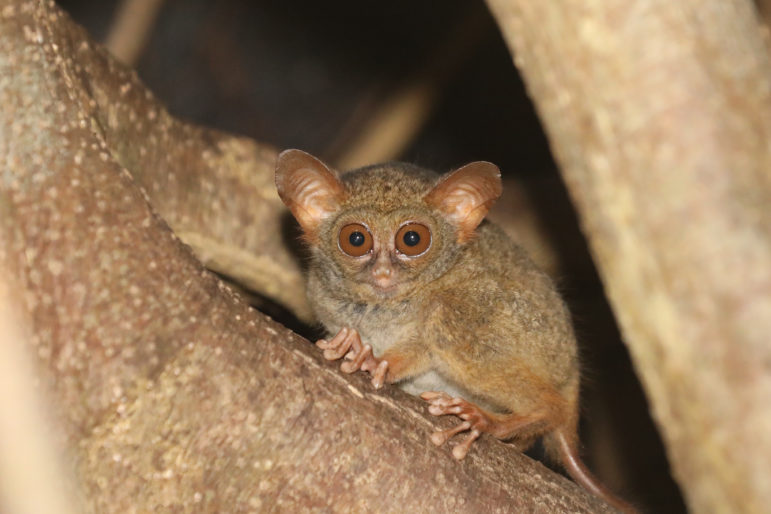
Indonesia is home of a wealth of species, like this tarsier from Sulawesi. Photo by Rhett A. Butler.
This past week we celebrated Mongabay-Indonesia’s fifth birthday. It’s hard to believe how far we’ve come: Mongabay-Indonesia has grown well beyond its original forests beat to cover issues ranging from indigenous rights to wildlife trafficking to marine issues.
The five-year event was opened with a message of hope from Jane Goodall that enthralled the audience. We presented awards to three individuals for outstanding contributions to protecting Indonesia’s incredible diversity: Professor Tukirin Partomihardjo, a biologist at Indonesia’s science institute LIPI; Tuan Guru Hasanain Juaini, Ustadz, a conservationist who previously won the prestigious Ramon Magsasay Award; and Anthony Sinaga, an environmental activist whose haze-monitoring platform pressured the Indonesian government. The three awardees then participated in a panel alongside myself on environmental issues in Indonesia.
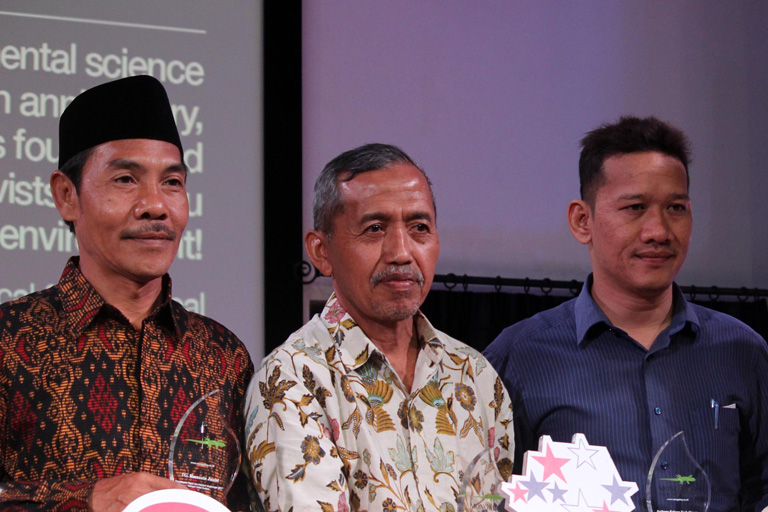
The award winners. Photo by Reza Septian, Mongabay Indonesia Contributor in Bogor.
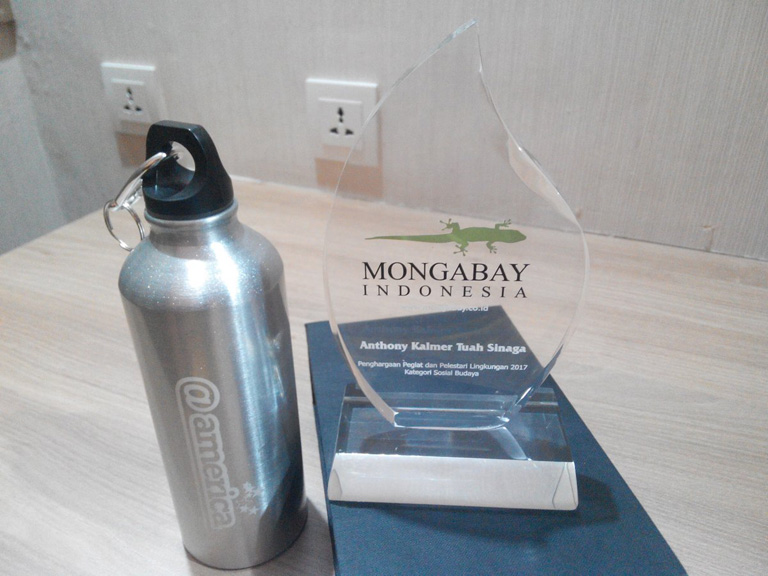
The award presented to Tukirin Partomihardjo, Tuan Guru Hasanain Juaini, and Anthony Sinaga
In attendance were numerous representatives from civil society organizations, news media, and the conservation community, but Aman, Indonesia’s largest indigenous peoples’ organization, had the biggest presence in the crowd, reflecting Mongabay-Indonesia’s coverage of the importance of indigenous lands in stewarding nature.
The first five years of Mongabay-Indonesia have been an amazing journey. I’m excited to see where the next five years take us.
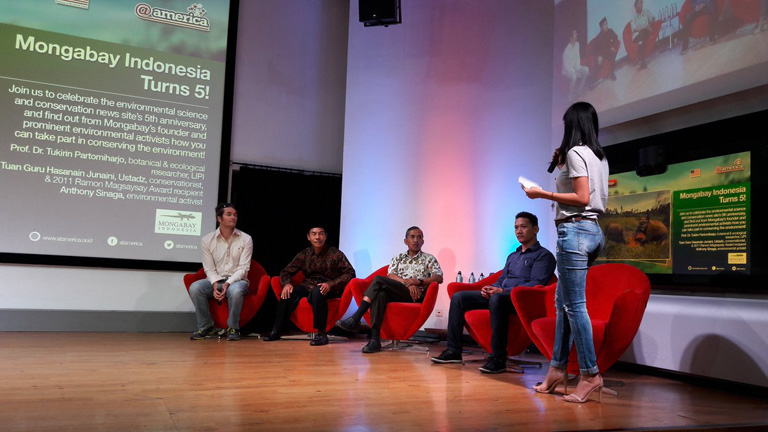
The panel
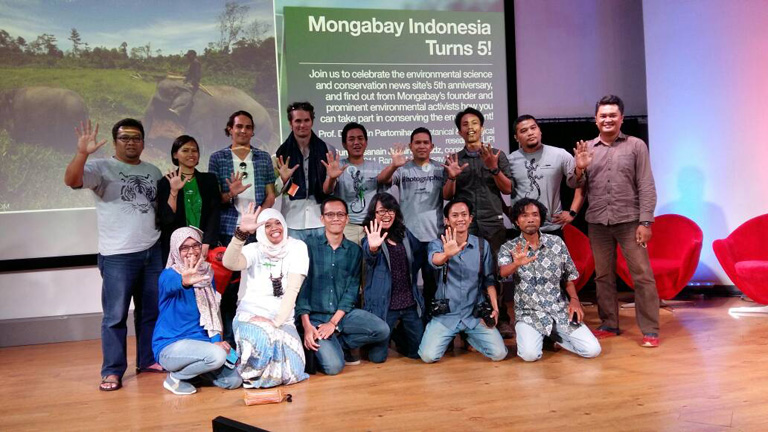
Mongabay-Indonesia staff and contributors at the anniversary event. Photo by Donny Iqbal, Mongabay-Indonesia Contributor in Bandung, West Java).
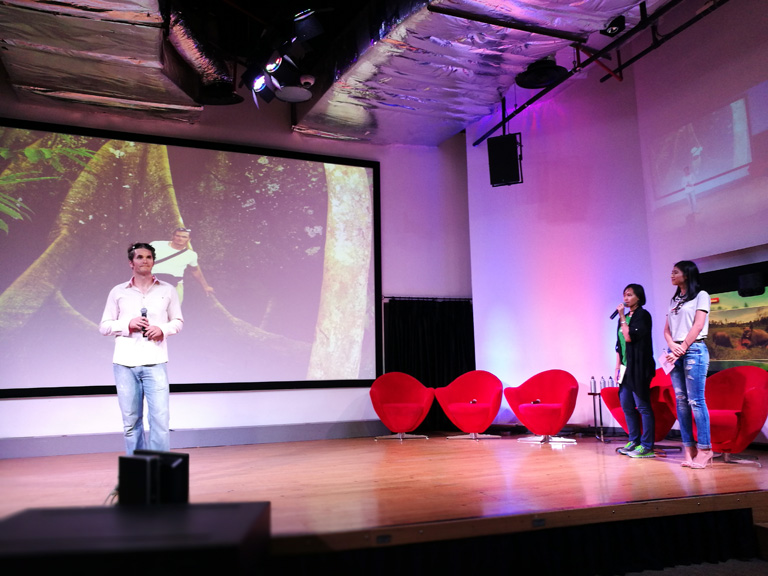
Mongabay founder Rhett A. Butler. Photo by Donny Iqbal, Mongabay-Indonesia Contributor in Bandung, West Java.